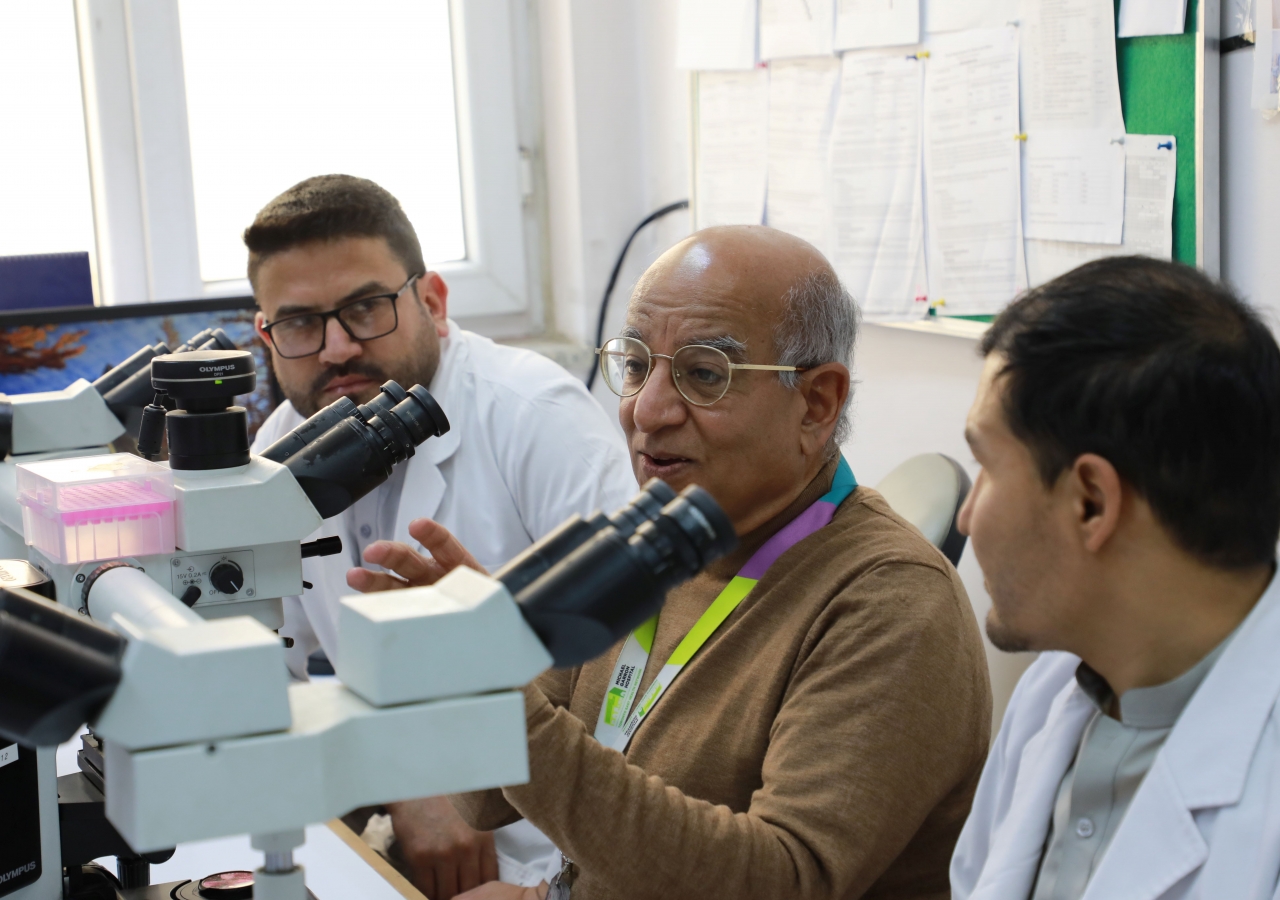In the realm of Haematology, Dr. Moloo orchestrated the acquisition of cutting-edge technology – a 7-part automated differential CBC (Complete Blood Count) analyzer and a Coagulation analyzer. He envisioned a future where precise diagnoses and treatment evaluations could be seamlessly achieved. Recognizing the unique challenges posed by leukaemia cases, he advocated for a Flow cytometer that would be a breakthrough in diagnostic accuracy. Addressing the challenge of whole blood wastage in Transfusion Medicine, Dr. Moloo pioneered the establishment of a ground-breaking solution – the Maximum Surgical Blood Order Schedule (MSBOS). This strategic move not only optimized resources but also reflected a commitment to efficient and sustainable healthcare practices.
In the Chemistry realm, Dr. Moloo applauded the department's robust infrastructure but urged collaboration with Siemens engineers for a layout reorganization. He proposed a comprehensive review of the test menu, ensuring that every test served a purpose, laying the foundation for enhanced efficiency.
Microbiology witnessed a revival under Dr. Moloo's guidance. Opportunities to rekindle the molecular laboratory's potential post-COVID emerged, with automation and additional biosafety measures at the forefront. The recommendation to acquire the Vitek 2 compact system will be a leap forward in microbial detection.
With Histopathology, Dr. Moloo recognized inadequacies in the grossing room and station so automation of Immunohistochemistry became a priority for consistent and reliable results. His assessment also extended to daily tasks, enhancing Turnaround Time (TAT) and the overall efficiency of the department. In the area of Cytopathology, Dr. Moloo identified the need for resident training, envisioning a collaborative effort with external experts. His vision included a transformative training program to equip the next generation of pathologists with specialized skills.
Dr. Moloo's assignment also focused on teaching sessions with pathology residents, where over 50 hours were dedicated to reviewing cases and discussing diagnostic nuances. His collaboration with faculty members Dr. Ramin and Dr. Esmat enriched the residents' educational journey. A meticulous review of approximately 150 surgical pathology cases revealed no major discrepancies. Dr. Moloo's recommendations will ensure a future where patient management would be consistently reliable, enhancing the quality of healthcare provided by FMIC.
As Dr. Moloo's TKN volunteer assignment concludes, the path ahead will include additional collaborative endeavours. Ongoing and future collaborations with international experts, online sessions, and hands-on support promise to elevate FMIC's standards. His TKN assignment is not just a story of challenges identified and solutions proposed; it is an example of the transformative power of partnership and dedication. Implementation of his recommendations by FMIC will enable the Pathology Department to become a beacon of healthcare excellence and will be a testament to the healing impact made by exemplary volunteers like Dr. Moloo. FMIC is immensely grateful to him for the magnanimous voluntary contribution of his outstanding expertise and extensive experience and for travelling to Afghanistan for this assignment.











